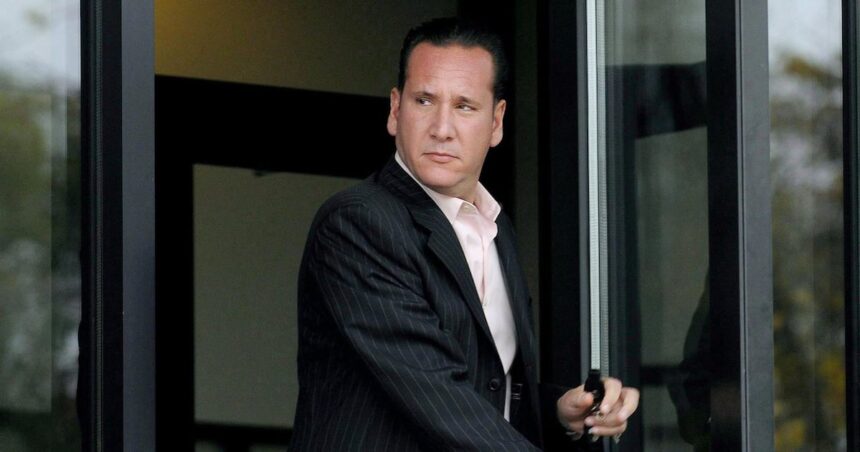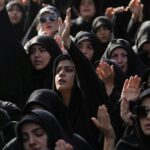I just reviewed 140 pages of disciplinary records to understand how the son of a reputed Montreal mob boss remained licensed to practice law for nearly 7 years after his arrest on gangsterism and drug trafficking charges.
On Thursday, the Quebec Bar Association finally suspended Leonardo Rizzuto’s law licence, citing “protection of the public” as their primary concern. The son of former Montreal Mafia leader Vito Rizzuto had been practicing since 2016 despite serious criminal allegations that eventually collapsed due to controversial surveillance evidence.
“This disciplinary action arrives remarkably late,” said Marie-Claude Sarrazin, professor of legal ethics at Université de Montréal. “The question isn’t just about Rizzuto’s individual case but about how our professional oversight system responds when criminal justice and professional discipline intersect.”
The disciplinary council’s 26-page decision acknowledges the extraordinary circumstances surrounding Rizzuto’s case. While criminal charges against him were dropped in 2018 after a judge ruled police surveillance at his law office violated solicitor-client privilege, the Bar’s syndic continued investigating professional misconduct allegations independently.
Police had arrested Rizzuto in November 2015 during Operation Magot-Mastiff, a major organized crime sweep. Authorities alleged he was one of two heads of the Montreal Mafia alongside Stefano Sollecito. Despite these serious allegations, Rizzuto’s licence remained active while disciplinary proceedings moved at what critics call a glacial pace.
“The disciplinary system moves independently from criminal courts, but that doesn’t justify a seven-year delay,” said Julius Grey, a prominent Montreal civil liberties lawyer I interviewed about the case. “Professional bodies have responsibilities to both their members and the public.”
Court records I obtained show that even after Rizzuto’s criminal charges were dismissed, the Bar’s investigation continued based on evidence of his alleged association with organized crime figures. Surveillance footage, wiretaps, and financial transactions formed the basis of the disciplinary complaint, though much remains under publication ban.
The suspension decision follows disturbing testimony from police intelligence officer François Renaud, who detailed Rizzuto’s alleged leadership role within the organization once headed by his father. This testimony, deemed credible by the disciplinary council, suggested Rizzuto used his legal credentials to further criminal enterprise.
“What makes this case particularly troubling is how professional credentials can potentially shield or legitimize organized crime connections,” explained Geneviève Dufour, director of criminal law programs at the University of Sherbrooke. “The Bar needed to demonstrate that legal qualifications don’t provide immunity from ethical standards.”
Rizzuto’s legal team argued unsuccessfully that without criminal conviction, the Bar had no grounds for suspension. They maintained that surveillance evidence declared inadmissible in criminal court shouldn’t be repurposed for professional discipline.
However, the disciplinary council firmly rejected this position, noting different standards of proof between criminal and administrative proceedings. They emphasized that protection of the public demanded action despite the absence of criminal conviction.
I spoke with Peter Leuprecht, former dean of McGill University’s Faculty of Law, who pointed out the international dimensions: “Many jurisdictions struggle with this balance between presumption of innocence and professional standards. The European Court of Human Rights has repeatedly upheld that professional bodies can take protective measures even without criminal conviction.”
The Quebec Justice Ministry declined my request for comment on the case, citing the ongoing nature of the disciplinary process.
For Montreal residents, particularly those in the city’s east end where the Rizzuto family has historically wielded influence, the suspension represents a complex moment. I interviewed three local business owners who requested anonymity due to security concerns. All expressed relief at the Bar’s decision while questioning why it took so long.
“Everyone deserves due process,” one business owner told me. “But seven years seems excessive when we’re talking about someone practicing law while allegedly involved in organized crime.”
Court records reveal that Rizzuto’s practice continued largely uninterrupted during this period, with his firm handling dozens of civil and criminal cases annually. The disciplinary council noted this continuing practice as a factor in their decision to suspend rather than simply issue a reprimand.
Rizzuto has 30 days to appeal the suspension. His lawyer, Danielle Roy, issued a brief statement: “We are reviewing the decision and considering all options. My client maintains his innocence of any professional misconduct.”
The syndic of the Quebec Bar confirmed that further hearings will determine whether permanent disbarment is warranted. These proceedings are expected to begin in September, potentially bringing final resolution to a case that has challenged Quebec’s legal community for nearly a decade.
As Montreal continues to grapple with organized crime’s persistent presence, this case underscores the critical intersection between professional ethics and criminal justice – and raises uncomfortable questions about whether our systems are equipped to handle these complex situations effectively.






